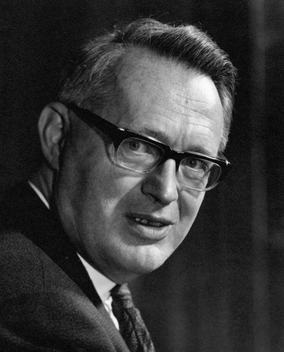Related Research Articles
Noncommutative geometry (NCG) is a branch of mathematics concerned with a geometric approach to noncommutative algebras, and with the construction of spaces that are locally presented by noncommutative algebras of functions, possibly in some generalized sense. A noncommutative algebra is an associative algebra in which the multiplication is not commutative, that is, for which does not always equal ; or more generally an algebraic structure in which one of the principal binary operations is not commutative; one also allows additional structures, e.g. topology or norm, to be possibly carried by the noncommutative algebra of functions.

Geometric group theory is an area in mathematics devoted to the study of finitely generated groups via exploring the connections between algebraic properties of such groups and topological and geometric properties of spaces on which these groups act.
In the mathematical area of group theory, Artin groups, also known as Artin–Tits groups or generalized braid groups, are a family of infinite discrete groups defined by simple presentations. They are closely related with Coxeter groups. Examples are free groups, free abelian groups, braid groups, and right-angled Artin–Tits groups, among others.

Dennis William Siahou Sciama, was an English physicist who, through his own work and that of his students, played a major role in developing British physics after the Second World War. He was the PhD supervisor to many famous physicists and astrophysicists, including John D. Barrow, David Deutsch, George F. R. Ellis, Stephen Hawking, Adrian Melott and Martin Rees, among others; he is considered one of the fathers of modern cosmology.
John K. S. McKay was a British-Canadian mathematician and academic who worked at Concordia University, known for his discovery of monstrous moonshine, his joint construction of some sporadic simple groups, for the McKay conjecture in representation theory, and for the McKay correspondence relating certain finite groups to Lie groups.
A quantum Turing machine (QTM) or universal quantum computer is an abstract machine used to model the effects of a quantum computer. It provides a simple model that captures all of the power of quantum computation—that is, any quantum algorithm can be expressed formally as a particular quantum Turing machine. However, the computationally equivalent quantum circuit is a more common model.
Douglas Geoffrey Northcott, FRS was a British mathematician who worked on ideal theory.

David Rees FRS was a British professor of pure mathematics at the University of Exeter, having been head of the Mathematics / Mathematical Sciences Department at Exeter from 1958 to 1983. During the Second World War, Rees was active on Enigma research in Hut 6 at Bletchley Park.

Maria Chudnovsky is an Israeli-American mathematician working on graph theory and combinatorial optimization. She is a 2012 MacArthur Fellow.

Christopher Deninger is a German mathematician at the University of Münster. Deninger's research focuses on arithmetic geometry, including applications to L-functions.

Richard Paul Winsley Thomas is a British mathematician working in several areas of geometry. He is a professor at Imperial College London. He studies moduli problems in algebraic geometry, and ‘mirror symmetry’—a phenomenon in pure mathematics predicted by string theory in theoretical physics.
Kohji Matsumoto is a Japanese mathematician. He is professor of mathematics at Nagoya University in Nagoya, Japan.

Joel David Hamkins is an American mathematician and philosopher who is O'Hara Professor of Philosophy and Mathematics at the University of Notre Dame. He has made contributions in mathematical and philosophical logic, set theory and philosophy of set theory, in computability theory, and in group theory.

Tamar Debora Ziegler is an Israeli mathematician known for her work in ergodic theory, combinatorics and number theory. She holds the Henry and Manya Noskwith Chair of Mathematics at the Einstein Institute of Mathematics at the Hebrew University.

In mathematics, a configuration space is a construction closely related to state spaces or phase spaces in physics. In physics, these are used to describe the state of a whole system as a single point in a high-dimensional space. In mathematics, they are used to describe assignments of a collection of points to positions in a topological space. More specifically, configuration spaces in mathematics are particular examples of configuration spaces in physics in the particular case of several non-colliding particles.

Thomas Ward is a British mathematician who works in ergodic theory and dynamical systems and its relations to number theory.

François Ledrappier is a French mathematician.

Eamonn Anthony O'Brien is a professor of mathematics at the University of Auckland, New Zealand, known for his work in computational group theory and p-groups.

Mohammad Sal Moslehian is an Iranian mathematician and a professor of mathematics at Ferdowsi University of Mashhad, Iran. He is the President of the Iranian Mathematical Society for the period of 2021-2024 and an invited member of the Iranian Academy of Sciences. His Erdős number is 3. He is known for his contribution to the operator and norm inequality. He has developed the orthogonality in Hilbert C*-modules and has significant contributions to operator means. He established noncommutative versions of martingale and maximum inequalities that play an essential role in noncommutative probability spaces. In addition, he has written several expository papers discussing research and education, as well as promoting mathematics.
Anna Maria Zdunik is a Polish mathematician. She specializes in dynamical systems, and is a professor at the University of Warsaw.
References
- ↑ Birth year from Library of Congress catalog entry, retrieved 2018-12-01.
- ↑ "Staff Profile - Mathematics, Statistics and Physics - Newcastle University". www.ncl.ac.uk.
- ↑ "Sarah Rees' Home Page". www.mas.ncl.ac.uk.
- ↑ Sarah Rees at the Mathematics Genealogy Project
- ↑ "Infinity, In Our Time - BBC Radio 4". BBC.